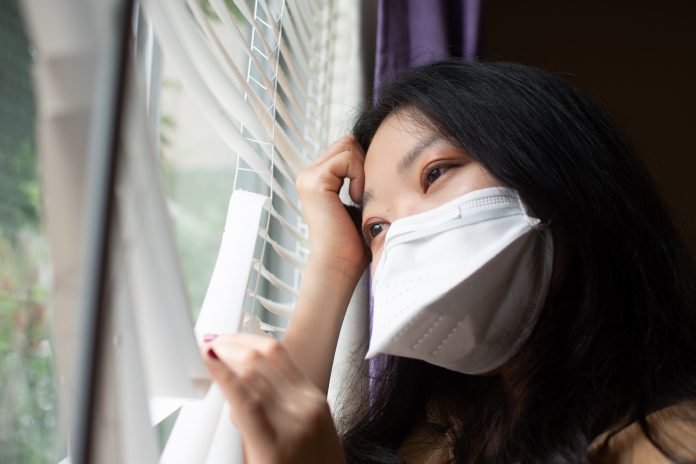According to a new study from the USC Dornsife College of Letters, Arts and Sciences, COVID-related discrimination against racial minorities has increased from March to April 2020
According to researchers, from March to April 2020, the percentage of U.S. residents who experienced COVID-related discrimination more than doubled from 4% to 10%.
In March, 11% of Asians and 9% of African Americans had experienced discrimination by someone who perceived them as having the coronavirus, compared to 4% of whites. According to the study, which was published in the American Journal of Preventive Medicine, in April, this increased to 16% of Asians and 15% of African Americans, compared to 9% of whites.
Researchers analysed responses from the Understanding Coronavirus in America tracking survey conducted by the USC Dornsife Center for Economic and Social Research (CESR) to evaluate the risk factors for discrimination such as race/ethnicity and wearing a face mask.
Mask-wearing linked to discrimination
Survey participants consisted of 3,665 U.S. residents aged 18 years or older to measure incidents of discrimination. The respondents were asked if “people thinking they might have the coronavirus” acted as if they were afraid of them, threatened or harassed them, treated them with less courtesy and respect, or gave them poorer service at restaurants or stores.
“The early spike in the percentage of people who experienced COVID-related discrimination was attributable – in part – to discriminatory reactions to the growing number of people wearing masks or face coverings at the early stage of the pandemic,” said Ying Liu, a research scientist with CESR.
Asian Americans were the first ethnic group to experience substantial discrimination which was partially explained by their immigration status and mask-wearing. African Americans’ risk of experiencing discrimination was higher than other non-Asian groups and also increased faster between March and April than others.
“This increase may in part be attributable to the spike in media coverage we saw during this time regarding African Americans’ disproportionate vulnerability to COVID-19,” said Kyla Thomas, a sociologist at CESR.
“In March, before widespread stay-at-home orders and when mask-wearing was rare, people wearing masks were more likely to experience discrimination,” said Brian Karl Finch, research professor of sociology and spatial sciences with CESR. “In April, only the frontline workers who wore masks had higher risks of experiencing discrimination.”
Mental distress
The research team also looked at how discrimination was related to mental distress among U.S. adults in the early stage of the COVID-19 pandemic. They found that people who were heavy users of social media were more likely to report an experience of discrimination and increased anxiety and depression.
“The relationship between COVID-related discrimination and worsening anxiety and depression is particularly pertinent during this pandemic, as it compounds mental health distress attributable to concerns of disease spread, social restrictions, and financial stress,” said PhuongThao Le, a postdoctoral researcher at Johns Hopkins Bloomberg School of Public Health.
Stigma can be detrimental to public health efforts
Discrimination toward people who share social or behavioural characteristics with COVID-19 patients, but may not carry the novel virus, was first seen in heightened anti-Chinese rhetoric online. Social media analyses showed a nearly 10-fold increase in the use of offensive language and reports on in-person racist acts against Asians.
“In mid-March, President Donald Trump referred to a ‘China virus’ or ‘Chinese virus,’ which coincided with an increase of online and in-person crimes including robbery and harassment of Asian Americans,” said Savannah Brenneke, a pre-doctoral researcher at Johns Hopkins Bloomberg School of Public Health.
The United Nations and the U.S. Centers for Disease Control and Prevention have called for increased attention to preventing stigma associated with COVID-19, which could undermine disease control efforts, worsen mental health outcomes and exacerbate disparities.
Source:
https://www.eurekalert.org/pub_releases/2020-07/uosc-cdd070620.php











